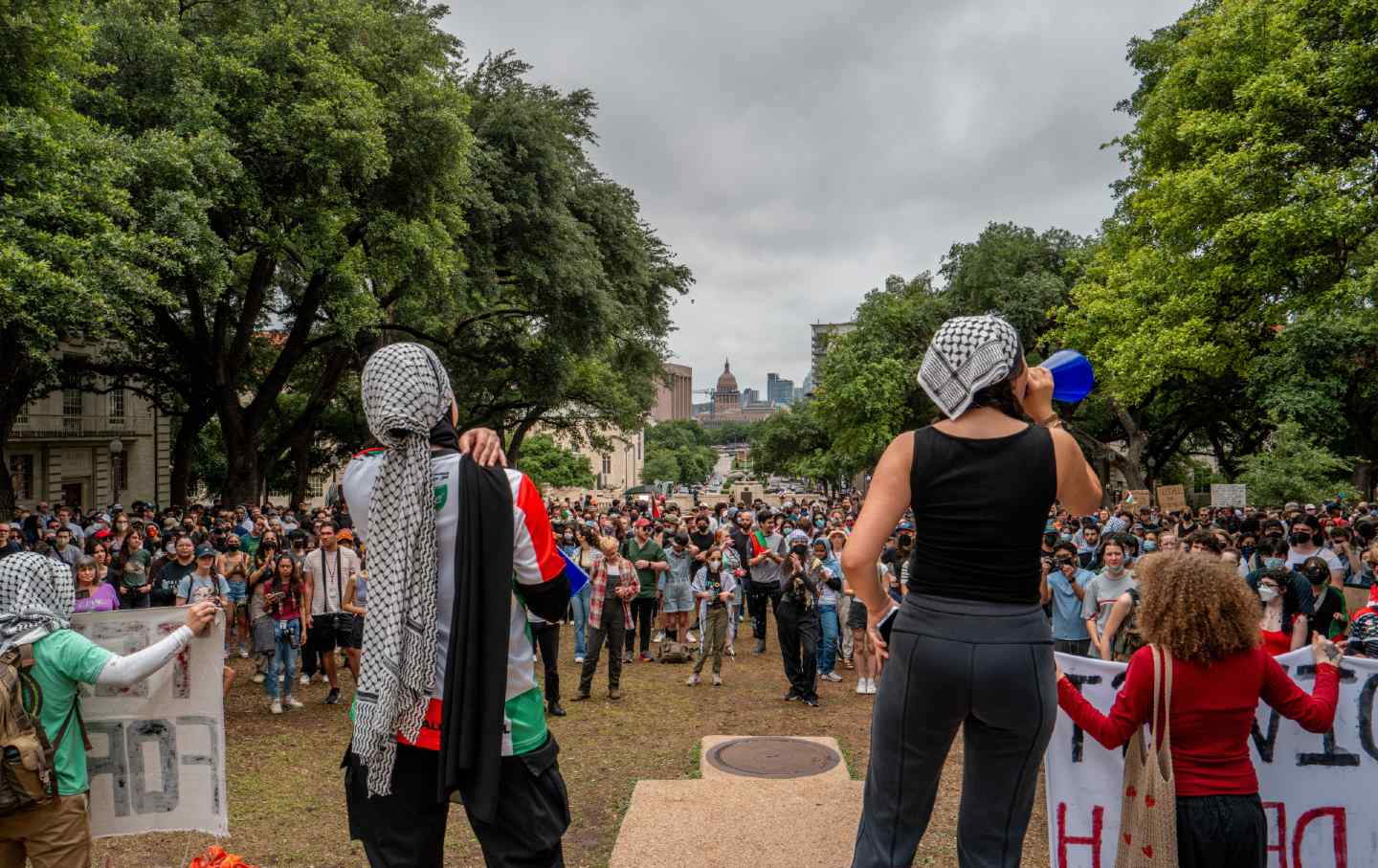On this episode of Start Making Sense, Ben Wizner on campus arrests, and Amy Wilentz on the White House state dinner.

Students at the University of Texas at Austin chant during a rally on May 5, 2024, to call on the university to fully divest from Israel. (Brandon Bell / Getty Images)
Here's where to find podcasts from The Nation. Political talk without the boring parts, featuring the writers, activists and artists who shape the news, from a progressive perspective.
As campus protests continue against American support for Israel’s war in Gaza, universities and colleges have legal obligations to combat discrimination and a responsibility to maintain order. But they must not sacrifice the principles of free speech that are core to their educational mission. Ben Wizner of the ACLU will explain.
Also: Kenya finally is sending 1000 police officers to Haiti on what is called a “UN security mission,” and Joe Biden held a gala state dinner honoring the president of Kenya for doing it. Amy Wilentz will comment on what she calls “the Devils’ Ball.”
Advertising Inquiries: https://redcircle.com/brands
Privacy & Opt-Out: https://redcircle.com/privacy
Almost 3,000 students have been arrested at more than 60 college campuses protesting American support for Israel’s war in Gaza. Schools have a responsibility to maintain order. But they must not sacrifice the principles of free speech that are core to their educational mission. How have they been doing? Ben Wizner comments. He’s Director of the ACLU’s Speech, Privacy, and Technology Project.
Also: Kenya finally is sending 1000 police officers to Haiti on what is called a “UN security mission,” and Joe Biden held a gala state dinner honoring the president of Kenya for doing it. Amy Wilentz will comment on what she calls “the Devils’ Ball.”
Here's where to find podcasts from The Nation. Political talk without the boring parts, featuring the writers, activists and artists who shape the news, from a progressive perspective.
While Trump’s attacks on the universities have broadened, and while Columbia is submitting to his requirements, Harvard’s president has declared that Harvard will not comply with the Trump’s demands in exchange for keeping its federal funding. David Cole comments – he recently stepped down as National Legal Director of the ACLU to return to teaching law at Georgetown.
Also: Elon Musk’s obsession with rockets and robots sounds futuristic, but “few figures in public life are more shackled to the past” – that’s what Jill Lepore has found. His ideas at DOGE seem to come from his grandfather, a founder of the anti-democratic Technocracy movement of the 1930s. Jill Lepore teaches history and law at Harvard, and writes for The New Yorker.
Advertising Inquiries: https://redcircle.com/brands
Privacy & Opt-Out: https://redcircle.com/privacy
Jon WienerTwitterJon Wiener is a contributing editor of The Nation and co-author (with Mike Davis) of Set the Night on Fire: L.A. in the Sixties.